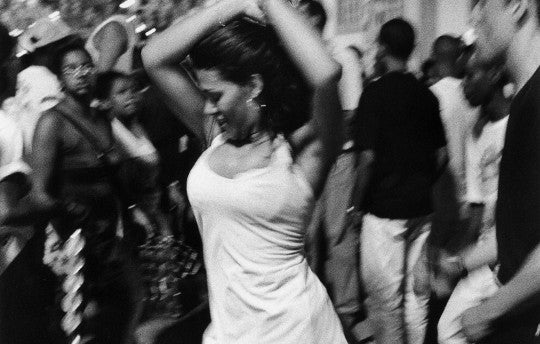Your Cart is Empty

The Rough Guide To Samba is the latest release to be added to World Music Network's vinyl collection. This limited edition LP comes with a free download card allowing you to download the album, delivering the perfect combination of audiophile vinyl quality and MP3 portability. In addition, the download card also gives you extra tracks! Ordering vinyl through our renewed subscription service has become easier and more affordable than ever, have a look here for more information about subscribing to World Music Network.
 Samba is the dancing spirit and rhythm of life in Brazil. This Rough Guide features the best of old and new from the Afro-Brazilian inspired Mart’nalia and underground artist Loop B to legendary sambista Alcione and superstar vocalist Marisa Monte.
Samba is the dancing spirit and rhythm of life in Brazil. This Rough Guide features the best of old and new from the Afro-Brazilian inspired Mart’nalia and underground artist Loop B to legendary sambista Alcione and superstar vocalist Marisa Monte.
Samba is Brazil’s cultural stamp, recognised the world over as the swinging dancing rhythm that represents the South American nation. Samba is a flexible form that is interpreted anew by every generation and clique of artists. This Rough Guide charts the dazzlingly diverse sounds of samba.
The contribution of female sambaista’s to the form is referenced by the inclusion of Alcione, the foremost of the older generation, with a regal stage presence and a thunderous voice. Also heard is Marisa Monte, the most successful Música Popular Brasileira (MPB) vocalist of the last decade or more. Her repertoire considers many styles but never neglects her first love, samba. Mart’nália brings a distinctive African feel to her music, and leading young sambista Teresa Cristina nails traditional favela sambas perfectly.
The traditional-revivalist thread of samba is represented by two groups and two solo artists: Samba Urbano clip along at double-time with an elegiac, flute-led piece; Partideiros Do Cacique bring Rio Carnival to the studio; Moyseis Marques’ minor-key samba expresses a whole spectrum of emotion and Luísa Maita’s ‘Lero-Lero’ is pure samba.
For the club and dancefloor there’s newcomer Odilara, the welcome return of prodigal son Rogê and soul sensation Márcio Local, all bearing the irrepressible hallmark of classic samba-suingue with killer horn arrangements. And finally, for good measure, we have Samba Um, with their tale of the malandro from Porto Da Pedra, a famous favela in São Gonçalo District, Rio.